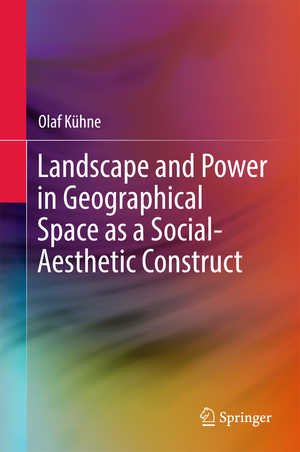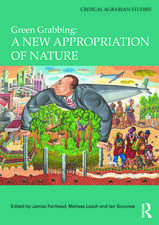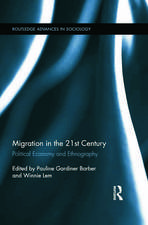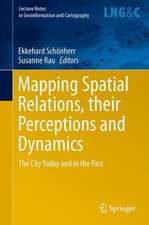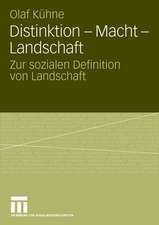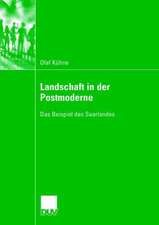Landscape and Power in Geographical Space as a Social-Aesthetic Construct
Autor Olaf Kühneen Limba Engleză Hardback – 22 feb 2018
| Toate formatele și edițiile | Preț | Express |
|---|---|---|
| Paperback (1) | 368.39 lei 38-44 zile | |
| Springer International Publishing – 9 mai 2019 | 368.39 lei 38-44 zile | |
| Hardback (1) | 395.63 lei 22-36 zile | |
| Springer International Publishing – 22 feb 2018 | 395.63 lei 22-36 zile |
Preț: 395.63 lei
Nou
Puncte Express: 593
Preț estimativ în valută:
75.70€ • 79.24$ • 63.01£
75.70€ • 79.24$ • 63.01£
Carte disponibilă
Livrare economică 10-24 martie
Preluare comenzi: 021 569.72.76
Specificații
ISBN-13: 9783319729015
ISBN-10: 3319729012
Pagini: 240
Ilustrații: IX, 256 p. 35 illus., 22 illus. in color.
Dimensiuni: 155 x 235 mm
Greutate: 0.59 kg
Ediția:1st ed. 2018
Editura: Springer International Publishing
Colecția Springer
Locul publicării:Cham, Switzerland
ISBN-10: 3319729012
Pagini: 240
Ilustrații: IX, 256 p. 35 illus., 22 illus. in color.
Dimensiuni: 155 x 235 mm
Greutate: 0.59 kg
Ediția:1st ed. 2018
Editura: Springer International Publishing
Colecția Springer
Locul publicării:Cham, Switzerland
Cuprins
Chapter 1. Introduction.- Chapter 2. Theoretical foundations for the work.- Chapter 3. The genesis of societal landscapes and their physical manifestoes.- Chapter 4. Social processes for the social definition of landscape.- Chapter 5. Case studies.- Chapter 6. Conclusion.
Notă biografică
Dr. Olaf Kühne, born in 1973, is Professor for Regional Development at University of Applied Sciences Weihenstephan-Triesdorf, Germany. The geographer and sociologist is specialized in landscape theory, urban and regional development as well as in landscape development.
Textul de pe ultima copertă
This book examines the power definiteness of landscape from a social constructivist perspective with a particular focus on the importance of aesthetic concepts of landscape in development. It seeks to answer the question of how societal notions of landscape emerge, how they are individually updated and how these ideas affect the use and design of physical space. It also analyzes how physical manifestations of societal activity impact on understandings of individual and societal landscapes and addresses the essential aspect of the social construction of landscape, cultural specificity, which in turn is discussed in the context of the expansion of a western landscape concept. The book offers an unprecedented, comprehensive and detailed examination of societal power relations in the context of landscape development. The numerous case studies from the physical manifestation of modern spatial planning in the United States, the power discourses concerning the design of model railway landscapes, and the medial production of stereotypical landscape notions shed light on the complex and multilayered interactions of collective and individual landscape references. It is a valuable resource for geographers, sociologists, landscape architects, landscape planners and philosophers.
Caracteristici
Presents a systematic distinction between the level of societal constructions of landscape, its updating by the individual agents themselves and the physical space Examines the relationship between societal and individual landscape notions in their feedback references to physical space Includes landscape-theoretical considerations as well as numerous empirical studies, mainly in the form of case studies
